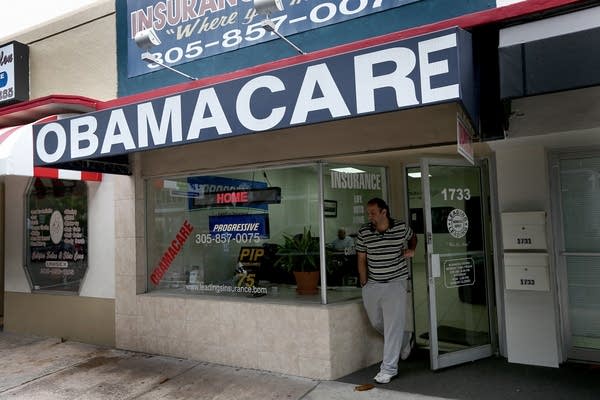A more affordable health-care law

The Affordable Care Act just got a little cheaper. A new report from the Congressional Budget Office and the Joint Committee on Taxation says that Obamacare premiums will be lower than initially thought — and those lower premiums mean the federal government will save more than $100 billion in the next 10 years.
"Obamacare's coverage provisions in 2014 are expected to cost $5 billion less than the $41 billion the Congressional Budget Office and Joint Committee on Taxation projected earlier in the year," reported the Washington Post's Wonkblog. "The CBO now expects the federal government to spend about $164 billion less in the next decade on subsidies in Obamacare health insurance marketplaces."
Many commentators say this news means the fight over the ACA is over.
"All the naysaying in the world can't drown out mounting evidence that the Affordable Care Act, President Obama's signature domestic achievement, is a real success. Republican candidates running this fall on an anti-Obamacare platform will have to divert voters' attention from the facts, which tell an increasingly positive story," wrote the Post's Eugene Robinson.
In the New York Times, Ross Douthat took a different view:
In the near term, this debate will go on because Obamacare has stabilized itself without fully resolving any of its internal problems. The liberal victory lap last week was half-earned: It really was a victory, given the initial website catastrophe, to arrive at seven million enrolled, and that success almost certainly establishes a new coverage baseline for any future overhaul.
But that baseline won't be anything like universal coverage, and it may fall short of universality by a much larger margin than the law's supporters hoped. Around a million of the seven million probably won't make their payments, and many had insurance previously. So even with the new Medicaid enrollees and the twentysomethings added to their parents' plans, the number of newly insured could end up around three or four or even five million short of the 13 million that the Congressional Budget Office predicted for Obamacare's first year.
Create a More Connected Minnesota
MPR News is your trusted resource for the news you need. With your support, MPR News brings accessible, courageous journalism and authentic conversation to everyone - free of paywalls and barriers. Your gift makes a difference.